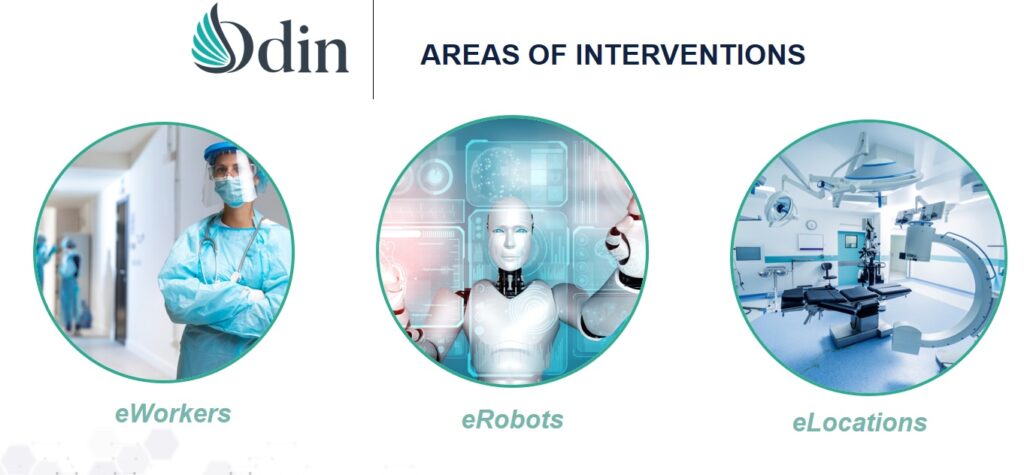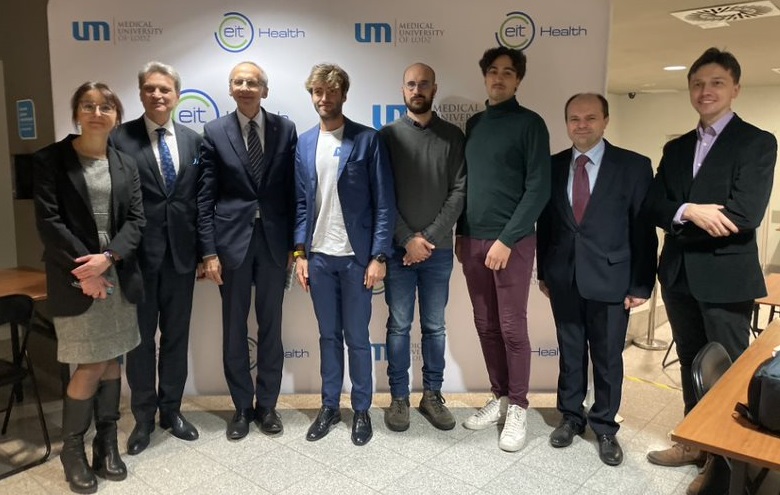ODIN Project
ODIN Project – Leveraging AI based technology to transform the future of health care delivery in Leading Hospitals in Europe – is a European multi-centre pilot study focused on the enhancement of hospital safety, productivity and quality. This project will contribute to the implementation of the European Smart Hospitals of the Future.

The main ODIN’s objective is to deliver an open digital platform, supporting a suite of services and Key Enabling Resources (KERs) empowered by robotics, Internet of Things (IoT) solutions and specialized AI. These resources will be implemented in three Reference Areas of Hospital Interventions: workers, robots and medical locations and will be tested through seven Clinical User Cases in leading hospitals of six European countries: Spain, France, Germany, Poland Netherlands and Italy.
The Covid-19 pandemic has revealed many gaps in healthcare systems and patient care delivery. The ODIN project will address these critical challenges by equipping healthcare professionals with artificial intelligence (AI), cybernetics and bionics, introducing autonomous and collaborative robots, and enabling the location of objects in medical spaces thanks to the Internet of Things (IoT).
ODIN’s vision assumes that just as Evidence Based Medicine (EBM) has revolutionized medicine with data-driven procedures, data-driven management (made possible by Industry 4.0 technology) can revolutionize the management of healthcare systems.
Polish Partner in the ODIN Project, implemented under the European HORIZON 2020 Program, is the Department of Family Medicine headed by Prof. Przemyslaw Kardas, representing the Medical University of Łódź. The team of researchers from the Department of Family Medicine designed and implemented three complementary solutions as part of the project: an autonomous intrahospital robotic transport system, a remote location system for mobile devices (e.g., ultrasound machines) within the hospital, and a secure decontamination process for the robotic system exposed to infectious agents (e.g., viruses with pandemic potential, such as COVID-19). These solutions were practically implemented in the Emergency Department of the CKD hospital. The video below shows their practical use, from the simulated collection of a biological sample from a patient to its safe delivery to the target laboratory.
It should be emphasized that UMED is the first partner in the ODIN consortium to successfully launch and integrate these specific systems. The experiences gained from these achievements will be utilized by the other international partners of the project, and in Poland, they will contribute to further introducing innovations in hospital conditions.
Read more about ODIN Project here>>
|
|
|
||
|
Participants of the ODIN session at XV University Conference on Emergency Medicine, |


